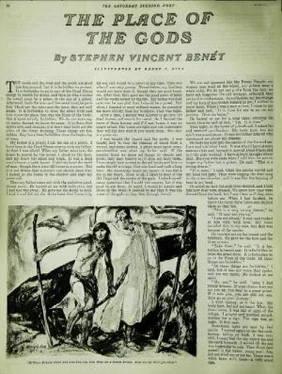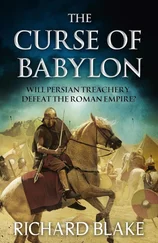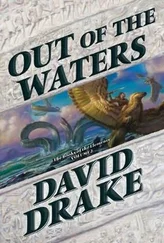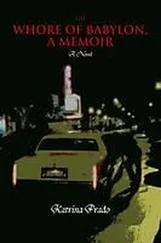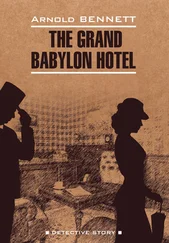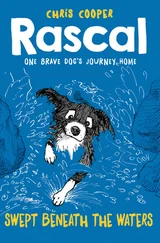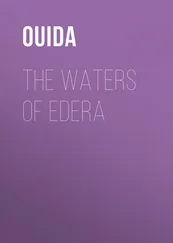Stephen Benét - By the Waters of Babylon
Здесь есть возможность читать онлайн «Stephen Benét - By the Waters of Babylon» весь текст электронной книги совершенно бесплатно (целиком полную версию без сокращений). В некоторых случаях можно слушать аудио, скачать через торрент в формате fb2 и присутствует краткое содержание. Жанр: sf_postapocalyptic, short_story, на английском языке. Описание произведения, (предисловие) а так же отзывы посетителей доступны на портале библиотеки ЛибКат.
- Название:By the Waters of Babylon
- Автор:
- Жанр:
- Год:неизвестен
- ISBN:нет данных
- Рейтинг книги:5 / 5. Голосов: 1
-
Избранное:Добавить в избранное
- Отзывы:
-
Ваша оценка:
- 100
- 1
- 2
- 3
- 4
- 5
By the Waters of Babylon: краткое содержание, описание и аннотация
Предлагаем к чтению аннотацию, описание, краткое содержание или предисловие (зависит от того, что написал сам автор книги «By the Waters of Babylon»). Если вы не нашли необходимую информацию о книге — напишите в комментариях, мы постараемся отыскать её.
as “The Place of the Gods”. It was republished in 1943 in The Pocket Book of Science Fiction, and was adapted in 1971 into a one-act play by Brainerd Duffield.
By the Waters of Babylon — читать онлайн бесплатно полную книгу (весь текст) целиком
Ниже представлен текст книги, разбитый по страницам. Система сохранения места последней прочитанной страницы, позволяет с удобством читать онлайн бесплатно книгу «By the Waters of Babylon», без необходимости каждый раз заново искать на чём Вы остановились. Поставьте закладку, и сможете в любой момент перейти на страницу, на которой закончили чтение.
Интервал:
Закладка:
Surely, that was enough to do, and live. Surely it was enough to spend the night upon the cliff. The Forest People themselves do not come near. Yet, all through the night, I knew that I should have to cross the river and walk in the places of the gods, although the gods ate me up. My magic did not help me at all and yet there was a fire in my bowels, a fire in my mind. When the sun rose, I thought, “My journey has been clean. Now I will go home from my journey.” But, even as I thought so, I knew I could not. If I went to the Place of the Gods, I would surely die, but, if I did not go, I could never be at peace with my spirit again. It is better to lose one’s life than one’s spirit, if one is a priest and the son of a priest.
Nevertheless, as I made the raft, the tears ran out of my eyes. The Forest People could have killed me without fight, if they had come upon me then, but they did not come.
When the raft was made, I said the sayings for the dead and painted myself for death. My heart was cold as a frog and my knees like water, but the burning in my mind would not let me have peace. As I pushed the raft from the shore, I began my death song—I had the right. It was a fine song.
“I am John, son of John,” I sang. “My people are the Hill People. They are the men.
I go into the Dead Places but I am not slain.
I take the metal from the Dead Places but I am not blasted.
I travel upon the god-roads and am not afraid. E-yah! I have killed the panther, I have killed the fawn!
E-yah! I have come to the great river. No man has come there before.
It is forbidden to go east, but I have gone, forbidden to go on the great river, but I am there.
Open your hearts, you spirits, and hear my song.
Now I go to the Place of the Gods, I shall not return.
My body is painted for death and my limbs weak, but my heart is big as I go to the Place of the Gods!”
All the same, when I came to the Place of the Gods, I was afraid, afraid. The current of the great river is very strong—it gripped my raft with its hands. That was magic, for the river itself is wide and calm. I could feel evil spirits about me, I was swept down the stream. Never have I been so much alone—I tried to think of my knowledge, but it was a squirrel’s heap of winter nuts. There was no strength in my knowledge any more and I felt small and naked as a new-hatched bird—alone upon the great river, the servant of the gods.
Yet, after a while, my eyes were opened and I saw. I saw both banks of the river—I saw that once there had been god-roads across it, though now they were broken and fallen like broken vines. Very great they were, and wonderful and broken—broken in the time of the Great Burning when the fire fell out of the sky. And always the current took me nearer to the Place of the Gods, and the huge ruins rose before my eyes.
I do not know the customs of rivers—we are the People of the Hills. I tried to guide my raft with the pole but it spun around. I thought the river meant to take me past the Place of the Gods and out into the Bitter Water of the legends. I grew angry then—my heart felt strong. I said aloud, “I am a priest and the son of a priest!” The gods heard me—they showed me how to paddle with the pole on one side of the raft. The current changed itself—I drew near to the Place of the Gods.
When I was very near, my raft struck and turned over. I can swim in our lakes—I swam to the shore. There was a great spike of rusted metal sticking out into the river—I hauled myself up upon it and sat there, panting. I had saved my bow and two arrows and the knife I found in the Dead Place but that was all. My raft went whirling downstream toward the Bitter Water. I looked after it, and thought if it had trod me under, at least I would be safely dead. Nevertheless, when I had dried my bowstring and re-strung it, I walked forward to the Place of the Gods.
It felt like ground underfoot; it did not burn me. It is not true what some of the tales say, that the ground there burns forever, for I have been there. Here and there were the marks and stains of the Great Burning, on the ruins, that is true. But they were old marks and old stains. It is not true either, what some of our priests say, that it is an island covered with fogs and enchantments. It is not. It is a great Dead Place—greater than any Dead Place we know. Everywhere in it there are god-roads, though most are cracked and broken. Everywhere there are the ruins of the high towers of the gods.
How shall I tell what I saw? I went carefully, my strung bow in my hand, my skin ready for danger. There should have been the wailings of spirits and the shrieks of demons, but there were not. It was very silent and sunny where I had landed—the wind and the rain and the birds that drop seeds had done their work—the grass grew in the cracks of the broken stone. It is a fair island—no wonder the gods built there. If I had come there, a god, I also would have built.
How shall I tell what I saw? The towers are not all broken—here and there one still stands, like a great tree in a forest, and the birds nest high. But the towers themselves look blind, for the gods are gone. I saw a fishhawk, catching fish in the river. I saw a little dance of white butterflies over a great heap of broken stones and columns. I went there and looked about me—there was a carved stone with cut—letters, broken in half. I can read letters but I could not understand these. They said UBTREAS. There was also the shattered image of a man or a god. It had been made of white stone and he wore his hair tied back like a woman’s. His name was ASHING, as I read on the cracked half of a stone. I thought it wise to pray to ASHING, though I do not know that god.
How shall I tell what I saw? There was no smell of man left, on stone or metal. Nor were there many trees in that wilderness of stone. There are many pigeons, nesting and dropping in the towers—the gods must have loved them, or, perhaps, they used them for sacrifices. There are wild cats that roam the god-roads, green-eyed, unafraid of man. At night they wail like demons but they are not demons. The wild dogs are more dangerous, for they hunt in a pack, but them I did not meet till later. Everywhere there are the carved stones, carved with magical numbers or words.
I went north—I did not try to hide myself. When a god or a demon saw me, then I would die, but meanwhile I was no longer afraid. My hunger for knowledge burned in me—there was so much that I could not understand. After a while, I knew that my belly was hungry. I could have hunted for my meat, but I did not hunt. It is known that the gods did not hunt as we do—they got their food from enchanted boxes and jars. Sometimes these are still found in the Dead Places—once, when I was a child and foolish, I opened such a jar and tasted it and found the food sweet. But my father found out and punished me for it strictly, for, often, that food is death. Now, though, I had long gone past what was forbidden, and I entered the likeliest towers, looking for the food of the gods.
I found it at last in the ruins of a great temple in the mid-city. A mighty temple it must have been, for the roof was painted like the sky at night with its stars—that much I could see, though the colors were faint and dim. It went down into great caves and tunnels—perhaps they kept their slaves there. But when I started to climb down, I heard the squeaking of rats, so I did not go—rats are unclean, and there must have been many tribes of them, from the squeaking. But near there, I found food, in the heart of a ruin, behind a door that still opened. I ate only the fruits from the jars—they had a very sweet taste. There was drink, too, in bottles of glass—the drink of the gods was strong and made my head swim. After I had eaten and drunk, I slept on the top of a stone, my bow at my side.
Читать дальшеИнтервал:
Закладка:
Похожие книги на «By the Waters of Babylon»
Представляем Вашему вниманию похожие книги на «By the Waters of Babylon» списком для выбора. Мы отобрали схожую по названию и смыслу литературу в надежде предоставить читателям больше вариантов отыскать новые, интересные, ещё непрочитанные произведения.
Обсуждение, отзывы о книге «By the Waters of Babylon» и просто собственные мнения читателей. Оставьте ваши комментарии, напишите, что Вы думаете о произведении, его смысле или главных героях. Укажите что конкретно понравилось, а что нет, и почему Вы так считаете.
